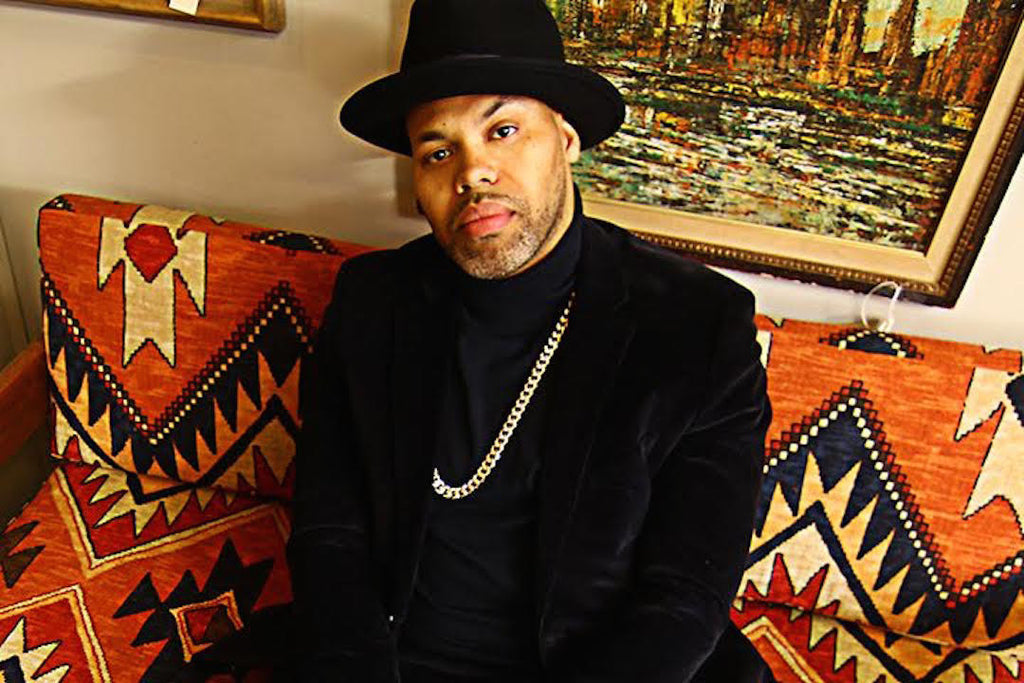Eric Roberson on His EP Trilogy, Trump and Music That Matters
By Eric Roberson

Eric Roberson is so low-key that if you sat next to the guy in a coffee shop you may not realize that you were sitting next to a human jukebox of hit records. Also known as Erro, he has written, produced, and done background vocals for the likes of Jill Scott, 112, Musiq Soulchild, Dwele, Carl Thomas, Will Smith, Vivian Green, and Charlie Wilson.
After years of writing, recording, performing, and touring Roberson manages to find new ways to creatively elevate the way fans receive his music. His Earth + Wind + Fire EP trilogy was announced in February, and he released Earth in April. Roberson created “The Process” to go along with his trilogy; an experience that gives fans an inside look into the creation of all three projects. Fans who are a part of “The Process” are able to watch songs as they are being created and provide feedback in a private Facebook group.
Roberson talked to The Boombox to discuss his project and his seventeen-year career as an independent artist and life after fatherhood.
What does each album in the trilogy represent?
Each one means something different: Earth was inspired by conversations with my grandfather. It’s very internal, how to be a better person, how to find my truth–my personal truth. And then Wind is more of an action album, it’s more acting out my love. My love for family, my love for my wife, romance, or just the good and bad of surviving, and keeping love alive.
Love is “roll up your sleeves and make it work.” I think Fire, which I can’t really speak much on because I haven’t created it yet. But as I create it, I’m guessing that’s more external, like how much I want the world to be better. How much I want to understand the stuff that I’m uncomfortable with. I’m writing a song right now called, “Slave Owners,” and it’s about walking around with pockets filled with slave owners–from the dollar bills to the twenty dollar bills–and just how we have to be comfortable with that.
My great-great-great grandfather was a slave in a town over from where my grandfather lives at. How we have to be comfortable with some of the negative histories on the land that we love and that gives us so much opportunity.
How has traveling to other countries and seeing different cultures influenced your music?
First, traveling to other countries reminds you that you’re small, which is something that my grandfather used to say. I recently went to Cuba, I did a soul cruise and I think [with] Fire especially you’re going to hear the influences of the culture that we saw in Cuba.
But even going to South Africa…that’s the beautiful thing about soul music, when you go to South Africa you’re not going to be the same person when you come home. When you go to Seattle you’re not going to be the same person when you come home. You have to be truthful and write about how you feel no matter what that scenario is.
Walking in your truth can be hard to do in the music business. How have you been able to walk firmly in your truth?
I made a choice very early on that who I was offstage I was going to be onstage and vice versa. I think I’ve stayed true to it, I think the challenge really came when I started having kids. The funny thing about the music business is that you are guaranteed to have a big show that’s going to happen on your son’s birthday. And you have to make a decision right there, are you going to take the gig, or are you going to be there for your child’s birthday? I’m going to be there for my kids birthday–period.
I don’t need a million dollars to be happy. Sure it would be great to have it and we would be balling out if we did but it’s not gonna be what brings me peace nor is it what’s going to bring me happiness. So let me focus on what’s going to bring me happiness and peace, and be satisfied and work hard for the money I do have. I appreciate being an independent artist and if I was signed to a Def Jam, I wouldn’t have the opportunity to be myself.
What made you transition from songwriting to creating your own music?
I started out as a songwriter because the other options were drying up. I realized you can make a living being a songwriter and there were these other opportunities. And for me I was just trying to survive in the music business–I wanted to be around the music business. Whether that was being a background singer, songwriter, vocal producer, or an artist. I think for me the artist thing started happening for me again when I started writing songs that I didn’t want to sell.
When it got too personal, when I wrote a song about my hopes and fears, and who I was in love with it was hard to give those songs away. It felt like I was literally handing you my journal, I think I was always an artist though. Even when I was writing a song in the studio and just demoing it, I was still performing, so it wasn’t a big change to become an artist.
Read More
